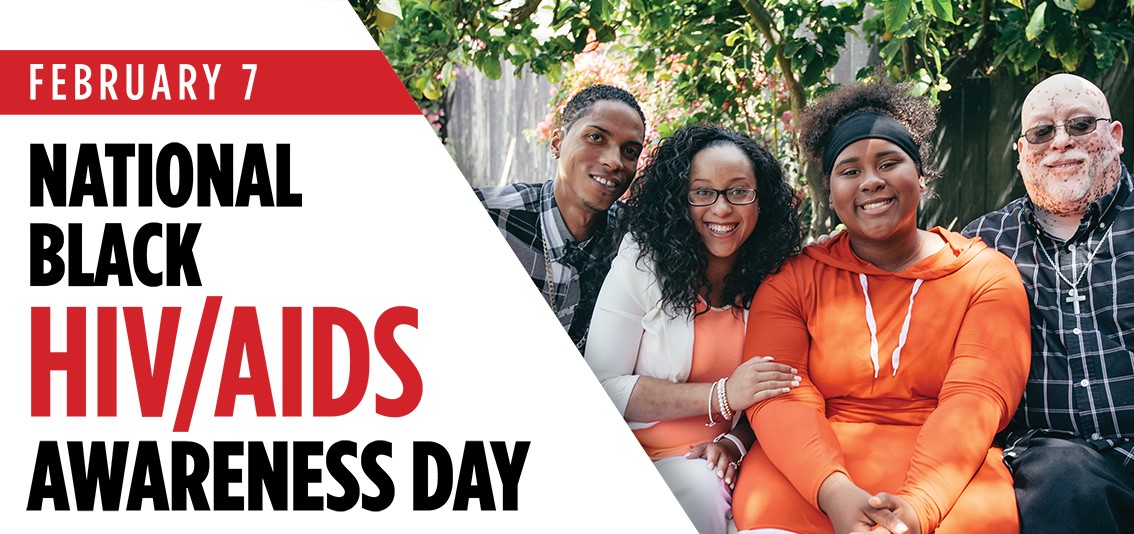It's a New Day in Public Health.
The Florida Department of Health works to protect, promote, and improve the health of all people in Florida through integrated state, county, and community efforts.
The Florida Department of Health Recognizes National Black HIV or AIDS Awareness Day
February 05, 2021

Sunday, February 7, marks National Black HIV/AIDS Awareness Day (NBHAAD), an annual observance meant to increase HIV education, testing, treatment and involvement among Black communities nationwide. In accordance with this year’s national theme, “We’re in This Together,” the Florida Department of Health is calling on all Floridians to unite in support of those with HIV and join us in our efforts to raise awareness about HIV and AIDS in Black communities.
In 2019, there were 116,698 people with diagnosed HIV in Florida. Of the 4,584 Floridians who received an HIV diagnosis in 2019, 38 percent were Black. Florida saw an eight percent decrease in the rate of new diagnoses and a 25 percent decrease in the rate of HIV-related deaths in the Black community from 2018 to 2019. Despite these decreases, Black persons with HIV are still less likely than others to be retained in HIV care. Regular HIV care includes antiretroviral therapy (ART), which decreases HIV in the body. This decrease, called viral suppression, leads to better health outcomes. Black Floridians with HIV are also less likely to achieve viral suppression and therefore miss out on important health and prevention benefits. To end the HIV epidemic in our state, we need to address head on the factors that contribute to these disparities and have candid conversations about HIV and its links to racism, discrimination, stigma, lack of health insurance, poverty, homelessness, unemployment, substance use disorders and mental health.
On this NBHAAD, the Department renews its commitment to overcoming disparities and connecting people to the resources they need to be able to live long, healthy lives. The Department’s HIV/AIDS Section and Office of Minority Health recently collaborated to fund grassroots, community-based organizations in the seven Florida counties most impacted by HIV. Sixteen organizations were awarded a total of $700,000 to conduct PrEP awareness, education, and referral activities. Additionally, the Department’s HIV Prevention Program has allocated over $10 million annually for the last 15 years to support community-level HIV prevention activities and strategies carried out by community-based organizations, community health centers, universities, substance use treatment providers, and health care settings. The 44 providers currently funded under the Department’s high-impact prevention grant reflect the communities they serve, with 17 meeting the definition of minority-owned organizations. Ninety-three percent of them serve Black/African American communities.
Now more than ever before, HIV is preventable. Taking PrEP and using condoms reduce the risk of acquiring HIV. Prevention may also take the form of regular testing for HIV. The Centers for Disease Control and Prevention recommends that everyone between the ages of 13 and 64 get tested for HIV at least once as part of their routine health care. People at higher risk should get tested at least once a year.
Florida is a national leader in HIV testing, and there are many ways to get tested. All 67 Florida county health departments offer HIV testing and PrEP services. You can also test yourself in the privacy and comfort of your own home. Visit KnowYourHIVStatus.com to learn more about testing options in your area or to order a free at-home HIV testing kit mailed directly to the address of your choice (while supplies last).
It is crucial that people with HIV begin treatment as soon as possible. Immediate treatment with ART typically leads to long, healthy lives for people with HIV. It’s also a method of HIV prevention. The viral suppression that results from treatment with ART makes it harder to transmit HIV to others. When HIV levels are too low to be detected by a viral load test, HIV cannot be transmitted sexually.
The Department is partnering with organizations throughout the state to observe NBHAAD. Check out our online events calendar to learn about what’s going on in your area and how you can commemorate this national health observance day.
Knowing your HIV status protects you and your community. Visit KnowYourHIVStatus.com to learn more. You can also call the Florida HIV/AIDS Hotline at 1-800-FLA-AIDS, 1-800-545-SIDA (en Español) or 1-800-AIDS-101 (in Creole) for more information.
The department, nationally accredited by the Public Health Accreditation Board, works to protect, promote and improve the health of all people in Florida through integrated state, county and community efforts.
Follow us on Twitter at @HealthyFla and on Facebook. For more information about the Florida Department of Health please visit www.FloridaHealth.gov.



Connect with DOH